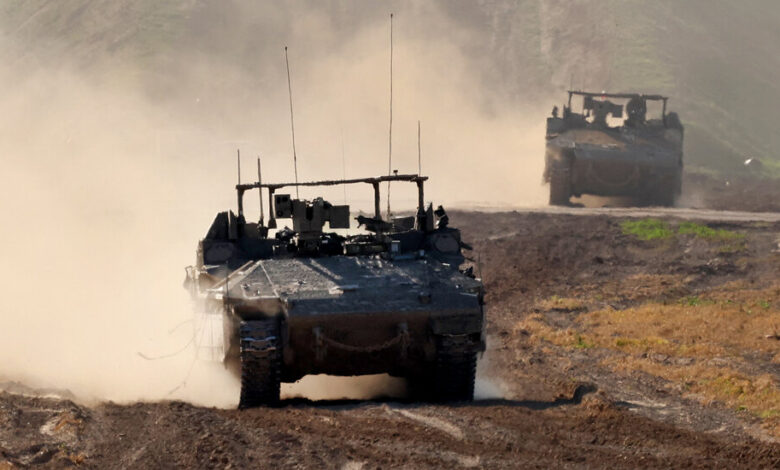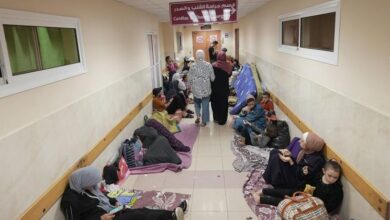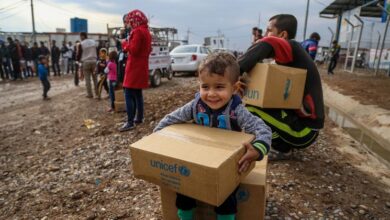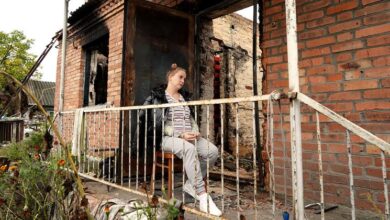Middle East Crisis: Netanyahu Asks Military for Plans to Evacuate Rafah, Where 1.4 Million Are Sheltering

Prime Minister Benjamin Netanyahu of Israel has ordered the Israeli military to come up with a plan for civilians sheltering in the southern city of Rafah to evacuate, his office said on Friday, as Israeli leaders have increasingly indicated they intend to ultimately send ground troops into the crowded city.
“Any forceful action in Rafah would require the evacuation of the civilian population from combat zones,” the prime minister’s office said, without saying what area those zones would cover or when such an operation would begin.
Roughly 1.4 million Palestinians are now sheltering in Rafah, according to the United Nations. Lying on the border with Egypt, the city is one of the last areas of the Gaza Strip in which Israeli ground troops have yet to deploy in force. Many of the people who have squeezed into the city have been displaced multiple times since the beginning of the war, and finding food, water and medicine has become a daily struggle.
But it is not clear where those people could go and Israeli officials have yet to provide any clear answers. Many displaced Gazans sheltering in Rafah have fled from towns and cities farther north in the enclave, devastated by war, where fighting continues and basic supplies are critically short, and Israel has said they cannot yet return.
Egypt has sealed the border and Cairo so far has shown no inclination to let large numbers of Palestinian refugees cross, in part because of fears they will never be allowed to return. Israeli officials have occasionally sought support for third countries to accept masses of Gazans since the beginning of the war, diplomats said.
The Biden administration warned on Thursday that it would not at this point support Israeli plans for a military operation in Rafah, and both a White House spokesman and the U.N. secretary general warned of catastrophe should Israeli ground troops deploy there.
“Given the circumstances and the conditions there that we see right now, we think a military operation at this time would be a disaster for those people,” a White House spokesman, John Kirby, told reporters.
The United Nations also voiced deep concern about an evacuation of Rafah. “We would not in any way support forced displacement, which goes against international law,” Stéphane Dujarric, spokesman for Secretary General António Guterres, told reporters on Friday.
When asked where evacuees could go, Mr. Dujarric said, “That’s a very valid question.”
In a statement, the Israeli prime minister’s office said that it could not realize Israel’s aim of eliminating Hamas’s rule in Gaza while leaving intact what it said were four battalions of the group’s fighters in Rafah.
The military’s “combined plan” would have to both “evacuate the civilian population and topple the battalions,” it added.
Israeli leaders have made clear in recent days that they intend to extend the invasion of Gaza into Rafah, on the border with Egypt. On Wednesday, Mr. Netanyahu said the Israeli security establishment was preparing to operate in the densely crowded area.
“Our soldiers are now in Khan Younis, Hamas’s main stronghold.” his office later wrote on social media. “They’ll soon go into Rafah, Hamas’s last bastion.”
The Palestinian Authority, which is based in the Israeli-occupied West Bank, said the proposed Israeli advance was “a dangerous prelude to implementing Israel’s unacceptable policy that aims to expel the Palestinian people from their land.”
Ahlam Shmali, a 31-year-old resident of Rafah, has struggled to sleep since Mr. Netanyahu suggested the Israeli military could put boots on the ground there. She has wondered where she could flee alongside her husband and 14-year-old son — certainly not into Egypt, she said.
She said the situation in Rafah is already catastrophic: little food is available and prices are sky-high, so her family normally only manages to eat one meal a day. Lacking firewood, they burn old clothes and any paper they can find to cook their meals, she added.
“What would happen to us if there were tanks, clashes, an invasion and an army?” she asked.
Giora Eiland, a former Israeli national security adviser, said a ground operation in Rafah carried risks for Israel if civilians were not effectively evacuated. That possibly could lead to high casualty counts and “enormous pressure on the border with Egypt” by Gazans fleeing the incursion. The international community might then significantly raise pressure for a cease-fire.
“We might reach the opposite of the intended result: you want to deal a final blow against Hamas in Rafah — but at a certain point, the world will tell you ‘no,’ and we end up on the losing end in every direction,” Mr. Eiland said in a phone interview.
Rawan Sheikh Ahmad contributed reporting.




